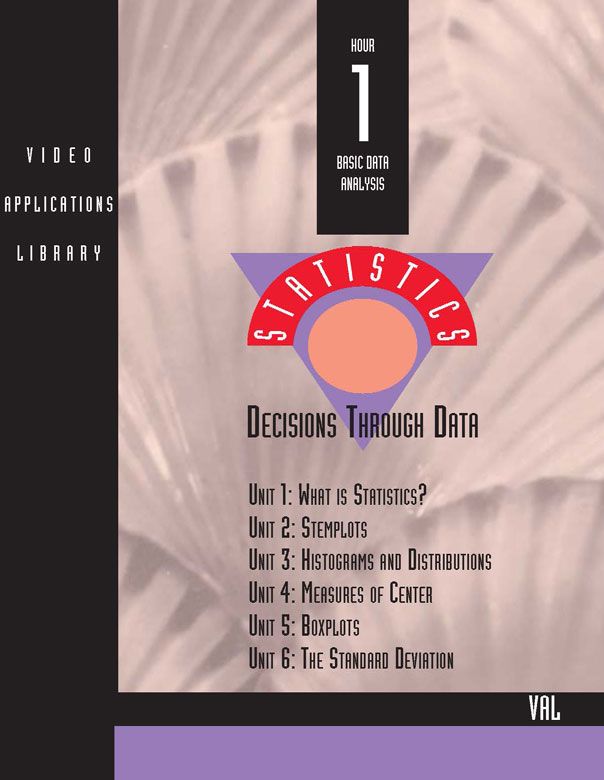Statistics: Decisions Through Data: Unit 2 Stemplots
Author: COMAP, Text by David S. Moore
Statistics: Decisions Through Data is an introductory statistics course that unravels the statistical arguments behind surveys, polls, experiments, and product claims. Each episode begins with a documentary segment that engages students' interest, and then teaches skills to gather data, analyze patterns, and draw conclusions about real-world issues.
Unit 2: Stemplots (11:36)
Summary of the Video
The video first introduces the idea of a variable, any numerical quantity that takes different values for different people or things. The distribution of a variable is the pattern of values. We see Army basic training and the Army’s task of outfitting its soldiers, who are quite different than in the past. The Army measures many variables on a large sample of soldiers to gain information about the distribution of, for example, head sizes.
A graph is usually the first step in describing data. Then we learn how to look at a stemplot. First look for the overall pattern. It is quite regular and roughly symmetric. There is a single peak close to the center. We also look at how spread out the data are.
Now we visit TV Channel 38 in Boston as its executives decide which programs to show. Data about what kind of audience each show draws is essential. We look at a stemplot of the ages of people who watch an action-adventure series. The data are in tenths of a year, so we truncate by removing the tenths before making a stemplot. There’s an outlier, a joker who claimed to be 120 years old. After looking for the overall pattern of a distribution, look for striking deviations from the pattern, such as outliers. The show draws a young audience, so the station will position it opposite shows on other stations that attract older audiences.
Video support materials are available as part of COMAP full membership. Each video is accompanied by instructor’s notes, student exercises, group activities and quizzes.

Mathematics Topics:
Application Areas:
Prerequisites:
You must have a Full Membership to download this resource.
If you're already a member, login here.